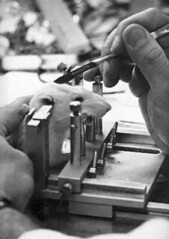Why Should We Test on Animals?

Animal research and testing has been an issue that has plagued both the medical and scientific world. An estimated twenty-six million animals are used per year in the United States alone for scientific testing. Some say that this is not a humane way to study the new drugs and vaccines that researchers have discovered cure various illnesses. Others disagree, believing that animal testing is a necessary element in the advancements of human health. Many cures, treatments, and vaccines have come from experiments done on animals to ensure that they work and are safe for human use. The use of animal testing is essential for advancements to be made in medical drugs and treatments.
Medical researchers have opted to use animals to test drugs and treatments because the animals are biologically similar to humans. Animals have the same vital organs as humans, meaning they develop in the same way. Almost all the genes in mice share the same functions as the genes in people, due to the shared ninety-eight percent of DNA. The similarities between humans and animals allow researchers to learn how diseases grow in the human body and how the body will react to medication. Using biologically similar animals helps in the verification of safe treatments, vaccines, and drugs.
Animal testing is a crucial element to certify that vaccinations are safe for human use. Scientists race to find vaccines that are both safe and effective. Extensive testing must be done to prevent vaccine enhancement, which can only be performed on a living, whole being. Vaccine enhancement is a situation in which the vaccine makes the disease worse in humans. The way to reduce this risk and know that a vaccine can prevent a disease is to see that vaccine enhancement does not happen in laboratory animals.
Many diseases that have dominated among large populations are not major threats to public health because of animal experiments. Polio, smallpox, cholera, and measles are no longer medical emergencies due to animal research performed when creating their vaccinations. Biomedical testing and research has benefited all who are alive today, because they can live a comfortable, healthy life, without the fear of diseases that once killed millions of humans. Although there are multiple ways to test a vaccine, animal testing done to create these preventative immunizations is the most beneficial.
Animals have become a core laboratory element when they are necessary. Human skin cells can be created from coaxing cell cultures together into a 3D structure. These cultures can also be put together to create a composition of cells that mimic organs such as the heart, lung, and kidney. Producing these structures provides a cheaper and more human way to research. Nothing, however, is the same as testing a new medical implement on a whole, living animal. Using laboratory animals is the most effective and safe way to advance in medicine and treatments.

Annie Wild is a senior at Ripon High School. She runs on the school's cross country and track teams. Wild is taking journalism to improve her writing style...




